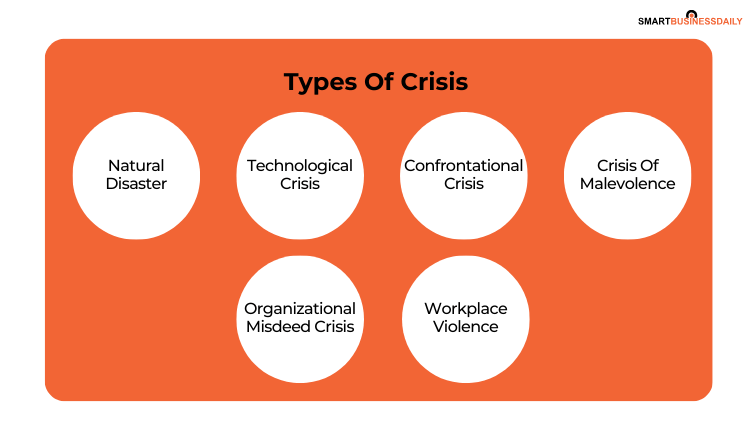Read This If You Want To Be A Master At Crisis Management
6 Mins Read
Published on: 30 July 2024
Last Updated on: 06 August 2024

toc impalement
Success is an intoxicating lover, and failure is that trusty friend. In other words, success will not stay. However, failures are sure to visit you from time to time. Therefore, knowing and having crisis management skills at your disposal is very important.
Understanding the essence of crisis management is one of the most essential things for an entrepreneur. As an entrepreneur, you must have a crisis management strategy at your disposal. This article will help you create those strategies and avoid crises.
What Is Crisis Management?

Crisis management is an umbrella term. It denotes an organization’s different steps to deal with a disruptive activity. Crisis management was first proposed after the large-scale industrial and environmental disasters due to two major wars (WWII and Vietnam).
Crisis management is based on three key elements. These include:
- The threat
- The Surprise
- The decision-making time
These three elements determine and make up the whole concept of Crisis Management. However, crisis management is a vast topic that needs deep research. Therefore, stick around to know more,
Crisis Management vs. Risk Management

Before heading deeper into the abyss and learning more about crisis management, we must understand one clear difference between crisis management and risk management.
Young entrepreneurs often think risk management and crisis management are two sides of the same coin. However, that is not the case. Both have some fundamental differences between themselves.
Risk management refers to planning and putting things simply. In other words, risk management is when an organization prepares for events that might happen. Think of it as a means of prevention.
Crisis management, on the other hand, is the act of containing a crisis. This is fixing the situation and moving on with the business operations. This fundamental difference sets these two concepts apart from each other.
Types Of Crisis

While training or learning crisis communication strategies, you will encounter different crises a business might experience. Therefore, it is essential to understand these crises from within.
This section will look at different forms of crises that you or your organization might face while operating. Here are eight of the most common business crisis management you must conduct to keep your business safe.
Let us dive right in and look at some of the most common crises you might face.
Natural Disaster
The most common and obvious crisis that one might experience is natural disasters. These calamities or freaks of nature are impossible to predict. Therefore, you will not get any hard and fast crisis management plan when dealing with these variants.
Natural disasters usually refer to natural calamities like storms, volcanic eruptions, landslides, earthquakes, tsunamis, etc. Technology adoption can give you some ideas. However, nothing stands in the way of scorned Mother Nature.
All you can do is hope and pick up the pieces when Mother Nature is done with you.
Technological Crisis
Technology adoption is evident, and the most logical step companies need to take to grow. However, this comes with its challenges. The first and foremost challenge is the technological breach, crisis, etc.
In today’s business landscape, technological crises are more common than before. As a result, more and more experts are prioritizing while formulating their crisis management strategies.
Given the data-driven nature of the world, technological crises are devastating and can bring an organization down to its knees. Take the Facebook case as an example. The breach hampered the brand’s reputation beyond fixing. As a result, the brand is slowly dwindling.
Confrontational Crisis
Confrontations are important and natural in workplaces. Regardless of the quality of the work environment, confrontations are bound to arise. However, when things get out of hand, and employees start demanding things from the company, there is a need for dedicated confrontational crisis management.
Confrontational crises are the ones that grow purely out of resentment towards the company. This form of resentment can be harbored by employees, interest groups, stakeholders, etc. Confrontational crises usually manifest in picketing, sit-ins, issuing ultimatums, etc.
Crisis Of Malevolence
Even if your business is big and has been operating for a while, it is not immune to miscreants. This is where the crisis of malevolence comes into play. Crisis of Malevolence is an umbrella term that denotes the crises that arose due to some criminal activity.
Crisis of Malevolence refers to problems that are usually due to criminal vendettas against companies. These include holding the company hostage, stealing data, tampering with evidence, extortion, phishing, etc.
The crisis of Malevolence can not only hamper business operations but can also leave deep scars on the psyche of individuals. Therefore, this form of crisis is known to be the most disruptive variant.
Organizational Misdeed Crisis
Sometimes, a disruptive element comes from within. In other words, we are talking about disruptions caused due to organizational misdeeds. This is also a prevalent form of crisis that organizations face.
Organizational misdeeds consist of three distinct types. The first deals with deception, the second deals with misconduct, and the third deals with skewed management values. This form of crisis is destructive to an organization’s reputation.
The worst part about this crisis is that it is usually noticed from a mile away. However, if senior management is involved, the situation usually needs to be controlled, and it becomes significant.
Workplace Violence
Workplace violence has been one of the major organizational crises for the longest time. There have been countless cases where employees have demonstrated sudden bursts of anger on their colleagues.
Workplace violence might not be disruptive to an organization on that level. However, it can be pretty traumatizing to all the individuals involved. Therefore, it should be considered a crisis as it hampers business operations.
Role Of Leadership During Crisis

Crisis management usually starts at the macro level. The usual process is identifying, assessing, and fixing. However, all these things start at the top of the management. Therefore, if you are inexperienced in these matters and want to know your role, follow along.
This section will highlight some of the most critical and key roles leaders play during crisis management. So that you know what to do to avert crises.
Then again, this is a subjective section; therefore, you need to use your faculty to get the best result.
Signal Detection
The foremost aspect of crisis management is understanding the signs. These signs usually manifest early. However, they are often analyzed. As a crisis management leader, your foremost job is identifying the signs. So that you have clarity about the direction to pick.
Prep & Prevention
The second part of the deal is the preparation and the prevention part of the conversation. As a business leader, you must stay prepared and prevent any crisis. Therefore, preparation is an essential part of the whole deal. You must sit with the crisis management team and devise proper plans to counter the crisis.
Containment
Crisis management is usually conducted once a business hits an obstacle. Therefore, using crisis management techniques, you can only do so much to stop a crisis. However, as part of the management team, you must make active headways to contain the problem. Otherwise, the problem would get outta hand.
Recovery
Once a business starts going under and the containment process is in full blast, the recovery process begins. The recovery process is an essential part of the process and must be done carefully. The recovery step is a multi-pronged approach where you incorporate different ideas under one roof. Therefore, it is a very complex process that must be done correctly.
Learning
Every failure is an opportunity to learn. This is one of the most accurate statements in an entrepreneurial setting. A crisis cannot dishearten you. Instead, you must be vigilant and adept enough to learn something new. Something that could help the organization avert such problems. Therefore, do not just try to contain the situation. Read the situation and find avenues to avoid them in the future.
Communication
The final responsibility a crisis management leader has is the responsibility to communicate and keep a sense of transparency. This helps create a sense of reliability and credibility across departments. A true leader leads in transparency. Not only that, but this practice would also enable you to handle the problem with a much more pre-emptive stance.
The Final Thought
In summation, this was all there is to understand the elements of crisis management are and how a crisis management situation is handled. However, managing crises is not an easy task. You will fail. However, do not be disheartened. Have an open mind and learn from the challenges you face.
Read More…


















Comments Are Closed For This Article